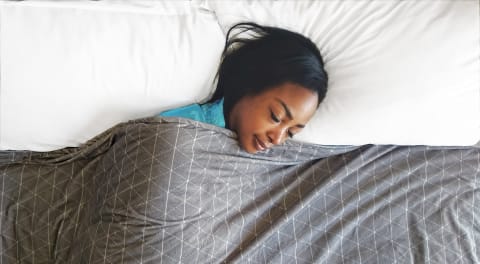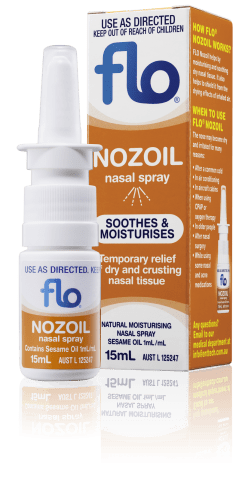Is CPAP covered by Medicare Australia NSW
Is CPAP Covered by Medicare in Australia NSW?
If you’ve recently been diagnosed with obstructive sleep apnea (OSA) or you’re exploring treatment options, you might be wondering: is CPAP covered by Medicare in New South Wales (NSW)? The answer is – it depends. While Medicare in Australia doesn’t directly fund the cost of purchasing a CPAP machine, it does provide support for important steps along your treatment journey. In some situations, certain individuals may also access government-subsidised equipment depending on their clinical status and where they receive care.
At Sove CPAP Clinic, we understand that navigating the healthcare system can feel daunting. That’s why we’re here to help – with personalised advice, Medicare-supported sleep study referrals, and tailored therapy solutions designed to make CPAP more accessible for NSW patients.
In New South Wales, Medicare provides partial coverage for services that lead to CPAP therapy, including sleep studies, consultations, and follow-ups. However, Medicare does not currently cover the cost of purchasing a CPAP machine for ongoing use unless you meet very specific eligibility criteria under public hospital systems or veterans’ programs.
Understanding What Medicare Covers
Medicare plays an important role in supporting parts of your diagnostic and treatment journey — but there are limits to what it will cover. Let’s break it down.
What’s Included:
Medicare provides subsidies for key medical services that help you reach a diagnosis. If your GP suspects you may have obstructive sleep apnea, they can refer you for a sleep study — either an in-lab overnight assessment (known as a Level 1 study) or a home-based test (Level 2). Both are eligible for a Medicare rebate when arranged through approved providers with a valid referral.
In addition to diagnostic testing, Medicare also assists with the cost of seeing a sleep specialist who can interpret your results and guide your treatment plan. This includes initial consultations and ongoing reviews, whether conducted in person or via telehealth.
What’s Not Included:
However, once you have a diagnosis and a prescription for CPAP therapy, Medicare does not currently contribute to the cost of the equipment itself. This means you’ll need to purchase your own CPAP machine and associated CPAP accessories — including masks, air tubing, humidifier chambers, and filters — from a private supplier. Repairs and replacement parts are also typically your responsibility, unless you’re enrolled in a public hospital loan program or supported by the Department of Veterans’ Affairs (DVA).
Public vs Private Care in NSW:
Your experience accessing CPAP therapy can differ depending on whether you’re a public or private patient. Public hospitals in NSW may offer limited support by lending out CPAP machines on a short-term basis or supplying devices to individuals with more complex medical needs or financial hardship. These programs vary between hospitals and often have waiting lists or strict eligibility criteria.
On the other hand, private patients — those receiving care through private sleep clinics or choosing to self-fund — are usually responsible for the full cost of their equipment. That said, Medicare still subsidises many of the upfront services, such as the sleep study and specialist consultations, regardless of whether you go public or private.
Sove Tip: Even if Medicare doesn’t fund the CPAP machine directly, that doesn’t mean support ends there. At Sove CPAP Clinic, we’re committed to making therapy accessible with a range of affordable solutions. We offer machine rental programs, interest-free payment plans, and our popular CPAP Care Plans — a comprehensive support service that includes education, check-ins, and discounted accessories to keep your therapy on track and stress-free.
CPAP-Related Supplies
Once you’ve been diagnosed with OSA and start CPAP therapy, it’s important to maintain your equipment regularly. Clean, functional gear is essential for effective therapy and your long-term health. Unfortunately, for most NSW residents, these items are not covered under Medicare.
CPAP Supplies Typically Not Covered:
- Replacement masks (nasal, pillows, or full-face).
- Tubing and heated hoses.
- Water chambers and humidifiers.
- Filters (disposable or reusable).
These supplies should be replaced regularly – every 3 to 12 months depending on the item and usage – to maintain hygiene and comfort.
Who May Qualify for Subsidised Supplies:
- Veterans covered by the Department of Veterans’ Affairs (DVA).
- Patients in state-run assistive technology programs.
- Public hospital patients may receive support for a limited period through government-supplied equipment loan schemes.
Brand Accessibility in NSW
Sove CPAP Clinic stocks and supports top brands trusted by sleep specialists across Australia, including:
- ResMed
- Philips Respironics
- Fisher & Paykel
We help you select the right model and mask combination, with guidance that aligns with your diagnosis and lifestyle.
Sove CPAP Clinic Supports Patients with Expert Care
Whether you’re navigating Medicare rebates, exploring funding alternatives, or trying CPAP for the first time, Sove CPAP Clinic is here to help. Our clinics across NSW and telehealth services across Australia are designed to support every patient, no matter where they are in their sleep therapy journey.
How Sove Makes CPAP More Accessible:
- Sleep Study Referrals: We connect you with accredited providers who offer Medicare-eligible in-lab or home sleep studies.
- Equipment Rental & Trials: Not ready to buy? We offer short-term and long-term CPAP rentals so you can try therapy without the upfront cost.
- Flexible Payment Plans: Spread the cost of your CPAP machine over time with interest-free options.
- CPAP Care Plans: Enjoy ongoing education, expert support, annual check-ins, and discounts on accessories.
ALWAYS FOLLOW THE DIRECTIONS FOR USE. CPAP is used for Obstructive Sleep Apnoea treatment. When considering whether a sleep study or CPAP is right for you, speak to your doctor. Medicare criteria and T&Cs apply.
Payment plans available for approved applicants only; fees, terms, conditions, minimum amounts and exclusions apply.
Frequently Asked Questions
What conditions must be met to qualify for CPAP coverage under Medicare?
To access Medicare-subsidised services in NSW, you’ll generally need:
- A GP referral to a sleep physician or specialist.
- A diagnosis of moderate to severe obstructive sleep apnea, determined through a Medicare-approved sleep study.
- Ongoing management by a medical professional, especially if additional testing or treatment planning is required.
While Medicare will support these medical services, it does not cover the cost of a CPAP machine or mask, unless you qualify for a hospital-based program or DVA support.
Sove Tip: If you’re not sure whether you meet the criteria, contact Sove CPAP Clinic. We’ll help you arrange a qualifying sleep study and explain your next steps.
What happens if I don’t meet Medicare criteria for CPAP?
If you don’t qualify for subsidised support under Medicare or a public hospital program, you’ll need to fund your equipment privately. However, that doesn’t mean you’re alone. Sove CPAP Clinic offers:
Affordable rental options for patients not ready to commit to buying.
Interest-free payment plans tailored to your budget.
Expert guidance to help you find a cost-effective setup that meets your therapy needs.
We also offer free consultations to review your options and help you stay on track, even if you’re paying out of pocket.
What percentage of the CPAP cost does Medicare cover?
For most NSW patients, Medicare does not cover any percentage of the CPAP machine cost directly. However, you may receive rebates for related services like:
- Initial sleep studies
- Consultations with a sleep specialist
- Follow-up reviews
These medical services can be bulk billed or rebated through Medicare depending on your provider. The equipment itself – including the machine, mask, and accessories – is usually not reimbursed unless you’re receiving care through a DVA program or public hospital.
Sove Tip: We make CPAP therapy affordable by bundling machines with follow-ups, education, and supplies — all tailored to your needs.
Does Medicare cover CPAP machine repairs or maintenance?
Medicare does not cover repairs, maintenance, or servicing of CPAP equipment. These are considered personal health items and are maintained at the user’s expense.
That said, if you’re enrolled in a hospital equipment program or covered by DVA, maintenance may be included for the duration of the loan or care plan.
Does Medicare require me to purchase from a specific CPAP supplier?
No, Medicare does not require patients to purchase from a specific CPAP supplier because it does not directly reimburse machine costs. You have full choice over where to buy your CPAP machine, mask, and accessories.
However, for sleep studies and consultations to be eligible for Medicare rebates, they must be completed by Medicare-accredited providers. That’s where it’s helpful to work with a clinic like Sove, which can ensure all the right steps are taken.
Sove Tip: We’re independent and patient-first. That means we help you compare models from major brands and choose what works best for your sleep therapy – not what’s most convenient for us.
How often can I get new CPAP supplies through Medicare?
For most patients, Medicare does not fund the replacement of CPAP supplies like masks, filters, or tubing. That responsibility usually falls to the patient.
However, if you are enrolled in a DVA program or supported by a hospital equipment scheme, there may be scheduled replacement timelines. For example, some programs provide new masks every 6–12 months.
At Sove, we recommend the following replacement schedule for best results:
Mask cushions: every 3 months
Filters: monthly (disposable) or 6-monthly (reusable)
Tubing: every 6–12 months
Water chambers: every 6 months








